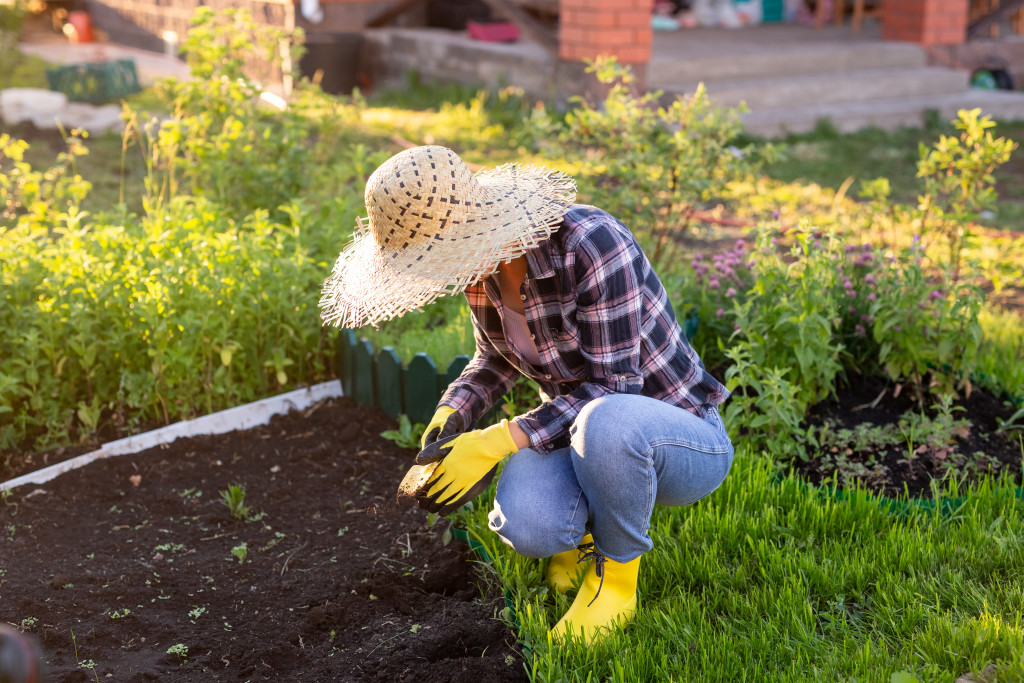Eating locally sourced food has become increasingly popular in recent years. So, what does it mean to be a part of a local food system? It’s about understanding how food is produced and where it comes from. Participating in local food systems can help strengthen communities, support farmers, and reduce environmental damage. Here are some tips to help transform your local food system.
Support Local Farms and Community Gardens
One of the most important things you can do to help transform your local food system is to support local farms and community gardens. Purchasing produce directly from farmers or joining a CSA (Community Supported Agriculture) program allows you to support small-scale sustainable farming practices that have numerous benefits for both the environment and your community.
You can also donate time or money to local organizations that support community gardens and other sustainable agricultural projects. Investing in local farms, you are helping to create a sustainable food system that will provide healthy, nutritious food for generations to come.
In addition to buying locally-produced food, it is also important to avoid purchasing processed and packaged foods imported from other countries. These products often contain harmful chemicals and additives that can be detrimental to both your health and the environment. By reducing your consumption of imported foods, you are supporting a more sustainable food system and helping protect the planet’s natural resources.
Finally, it is essential to remember that transforming your local food system starts with you. It would help if you educate yourself on food production issues and consciously decide what you eat. This can help create a healthier, more sustainable food system for your community.
Manufacture Durable Food Processing Equipment Locally
A reliable gray iron casting process can help manufacture durable food processing equipment. Using iron casting produces heavy-duty equipment that can last long. It is also cost-effective and eco-friendly, as it reduces the need for frequent replacements. It also reduces emissions.
Additionally, working with a local foundry allows for greater control over product quality and timeliness of delivery. This method allows food processing equipment to be customized to meet specific needs or match your existing kitchen designs.
Using high-grade materials, such as stainless steel and aluminum, can ensure the durability of your food processing equipment. And with a local foundry’s help, you can have the peace of mind that comes with having more control over product quality and delivery times. Local manufacturing also allows for on-site repairs or replacements if something happens to go wrong. This helps keep your business running smoothly without costly replacements or extended downtime.
Finally, because local manufacturing produces fewer emissions than importation and shipping, it is a more eco-friendly option for food processing equipment. Investing in locally made products ensures that the product is of high quality and helps reduce your carbon footprint. As an added bonus, you can often get better prices when working with a local foundry.

Eat Seasonally
Eating seasonally is necessary to reduce food production’s ecological impacts. Eating produce that’s in season helps reduce the energy used during transportation and ensures that you are eating fresher, healthier foods. Eating seasonally also allows you to appreciate the different flavors available throughout the year as items come into and out of season. It’s also a great opportunity to experiment with new recipes and get creative in the kitchen! Eating seasonally is an easy, environmental-friendly step everyone can take to reduce emissions from food production.
Buy Directly From Producers
By buying directly from producers – whether at a farmers market or through an online platform – you are helping keep more money within your community instead of going towards large corporations or third-party distributors. Buying directly from producers also typically means that products are fresher than those found in grocery stores. These products often don’t travel long distances before arriving at their destination.
When you buy directly from local producers, you can also ensure that the food you purchase is sustainably produced and of high quality. This type of buying also helps support small-scale farmers who may need help to compete with large agricultural companies.
Lastly, purchasing directly from producers allows customers to have direct conversations with the people growing and making their food, allowing them to ask questions about ingredients and production methods. This helps create more transparency in the food system and encourages more local investment in sustainable agriculture.
Transforming local food systems can lead to greater economic stability within the community while also providing healthier options for everyone. By supporting local farms, eating seasonally, and buying directly from producers, you can actively create a more sustainable and equitable future for your communities. Each of these steps is simple, but together they create effective change. So get out there today and start transforming your local food system.




